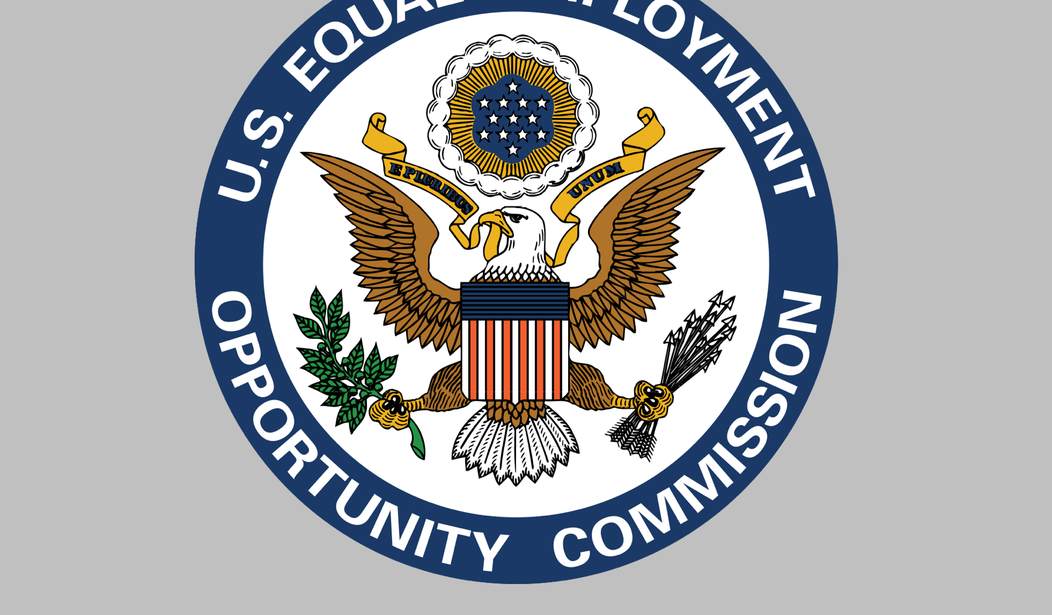On April 23, Donald Trump signed an executive order entitled “Restoring Equality of Opportunity and Meritocracy,” which will end "disparate-impact theory."
According to Heather MacDonald, writing in City Journal, disparate-impact theory states "that if a neutral, colorblind standard of achievement or behavior has a disproportionately negative effect on underrepresented minorities (overwhelmingly, on blacks), it violates civil rights laws."
Disparate impact theory originated in a 1971 Supreme Court case, Griggs v. Duke Power Company. The case challenged the1964 law that prohibits racial discrimination by employers. At this time, there had to be evidence of "intentional" discrimination.
The Equal Employment Opportunity Commission (EEOC) claimed that Duke Power was discriminating against black applicants because it required the passing of a standardized test and a high school diploma. The agency argued that the purpose of Title VII was to “accomplish economic results, not merely to influence motives or feelings.”
The justices agreed because the fact that blacks were rejected at a higher rate than whites proved that there was discrimination.
In essence, the Civil Rights Act went from trying to ensure "equality of opportunity" to demanding "equity in outcomes." If it could be shown that a policy had a "disparate impact" on the number of minorities hired, the company or organization was liable for damages.
Donald Trump has upended the entire rickety structure of disparate impact, and if it stands up to court challenges, will revolutionize America by restoring the Civil Rights Act to its original purpose.
For Our VIPs: Trump Is Leveling the Playing Field for American Businesses — and Employees
MacDonald lists how "disparate-impact theory" has destroyed meritocracy.
It has been used to invalidate literacy and numeracy standards for police officers and firemen, cognitive skills and basic knowledge tests for teachers, the use of SATs in college admissions, the use of grades for medical licensing exams, credit-based mortgage lending, the ability to discipline insubordinate students, and criminal background checks for employees and renters. It has been used to eliminate prosecution for a large range of crimes, including shoplifting, turnstile jumping, and resisting arrest; to end police tactics such as proactive stops (otherwise known as stop, question, and frisk); and to purge safety technologies like ShotSpotter and speeding cameras from police departments.
This is just a small sampling of how disparate-impact regulations have destroyed the basis for an equitable society based on merit.
To be sure, America is not a perfect meritocracy by any means. Nepotism, favoritism, and, yes, racism played a role in hiring and firing. Human beings ran businesses, and to expect anything else was unrealistic.
Civil rights groups exploited those facts to create a system that required companies to hire people not based on ability as much as the color of their skin or their gender. There could be no disparate impact on blacks or other minorities.
Disparate-impact theory preserved the hegemony of the civil rights regime long after the original impetus for that regime had all but disappeared. One would be hard-pressed today to find any mainstream institution that discriminates against blacks in admissions, hiring, or promotion. The reality, in fact, is the opposite: every mainstream institution is desperate to hire and promote as many remotely qualified blacks as possible; it is white males who are disfavored and excluded from positions based on their skin color.
If those black-welcoming institutions continued to employ a single standard of achievement, and that standard disqualified blacks at a disproportionate rate, civil rights enforcers would declare that they had uncovered yet another redoubt of white supremacy. The diversity bureaucracy in universities and the corporate world would send out the message that blacks continue to face discrimination at every turn and that they should take refuge in a victim identity.
"Meanwhile, the real cause of disparate impact—the yawning academic skills and crime gaps—was kept assiduously offstage," writes MacDonald.
Trump is ending that, and not just at the federal level. While the executive order will begin the repeal process for hundreds of regulations that became part of the Civil Rights Act of 1964, it also requires the "cataloguing of state laws that impose disparate-impact liability, among other actions," according to MacDonald.
Leftists are beside themselves, accusing Trump of a “fundamental shift in legal philosophy.” That's exactly what disparate-impact theory did 50 years ago. Returning the law to its original intent is justified considering how wacky disparate-impact theory has made the U.S.
The best way to make sure that no succeeding administration can overturn this executive order would be for the Republican Congress to codify the order into law. At the very least, it would begin a long overdue debate.
Is the United States still disfigured by systemic racism that requires the dismantling of meritocratic standards? Or are we ready to live in a nation where we can be confident that the doctor who walks through an emergency room door is there because of his medical expertise, not his race?
It's hard to overstate what it would mean if "disparate impact statements" were eliminated in enforcing federal regulations or hiring and firing decisions. Perhaps it would force a reckoning in minority communities about the true reasons for underperforming students and unqualified job applicants.
Help PJ Media continue to tell the truth about the Trump administration's accomplishments as we continue to usher in the Golden Era of America. Join PJ Media VIP and use promo code FIGHT to get 60% off your membership.










Join the conversation as a VIP Member